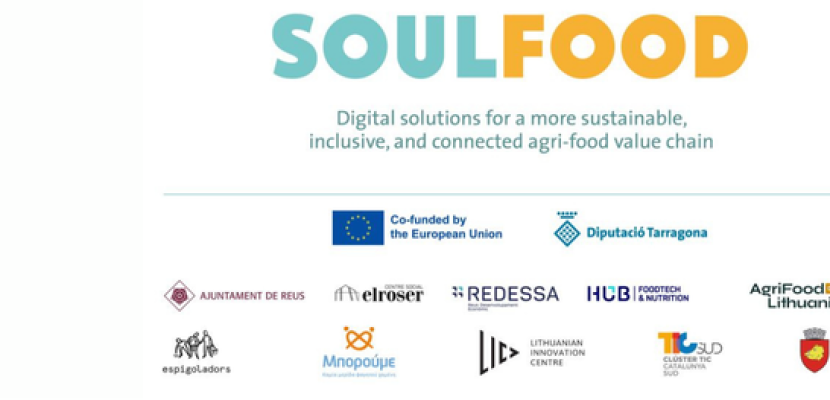
SOULFOOD - Digital solutions for a more sustainable, inclusive and connected agri-food value chain

About this good practice
The SOULFOOD project addresses the critical issues of food loss and food insecurity in Europe, where surplus crops often go to waste despite the persistent need for accessible food among vulnerable populations. Current systems lack efficiency in redistributing surplus food, leading to both environmental and social challenges. SOULFOOD aims to bridge this gap by leveraging technology to create a more sustainable and equitable agri-food system.
The project focuses on developing a digital platform to connect agricultural producers with surplus crops to NGOs and local governments for redistribution. Producers can list surplus food on the platform, enabling social initiatives to coordinate efficient pick-ups and distribution to those in need. This process prevents food from being wasted while ensuring it reaches communities facing food insecurity. The platform’s beta version is currently being tested, involving collaboration with producers and social organizations across Catalonia and Lithuania.
By engaging multiple European partners, the project combines local and international expertise to tackle these challenges collaboratively. While still in its early stages, SOULFOOD demonstrates the potential to optimize resource use, reduce food waste, and improve food access. Its model, relying on straightforward technology and strong stakeholder collaboration, is both scalable and transferable to other regions facing similar challenges.
Expert opinion
Resources needed
The total project cost is €801,739.88, reflecting the extensive collaboration with multiple European partners. This includes €35,000 for tool development and annual maintenance by the tech partner. Additionally, producers testing the platform received €2,000 each to pilot it for one year.
Evidence of success
The project is still in its early stages and involves 8 producers (2 in Catalonia, 6 in Lithuania) and several social initiatives. Although measurable results are pending, it aims to prevent food loss and aid vulnerable populations. In 2023, 76t of fresh produce were recovered in Tarragona, and 76t more in Lithuania. Digitalizing and automating the process through the SOULFOOD project will boost these numbers and allow to reach more people in need.
Potential for learning or transfer
The SOULFOOD project is highly transferable due to its straightforward technology and broad relevance in tackling food waste and insecurity. The platform bridges agriculture and social initiatives, an innovative approach applicable to many regions. Key success factors include adaptable infrastructure, strong stakeholder collaboration, and data availability. While the tool's ownership remains with the developer, the model can be replicated widely. Challenges may arise in areas with limited technological infrastructure or weak stakeholder networks. No transfers have occurred yet, but the project holds great potential for replication.

